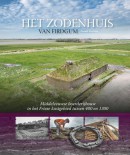Product informatie
- ISBN 9789088902017
- ISBN 10 9088902011
- Druk 1
- Bindwijze Paperback
- Taal Engels
- Uitgever Sidestone Press
- Onderwerp Archeologie
- Beschikbaar sinds 30 December 2013
Samenvatting
Salt was a commodity of great importance in the ancient past, just as it is today. Its roles in promoting human health and in making food more palatable are well-known; in peasant societies it also plays a very important role in the preservation of foodstuffs and in a range of industries. Uncovering the evidence for the ancient production and use of salt has been a concern for historians over many years, but interest in the archaeology of salt has been a particular focus of research in recent times. This book charts the history of research on archaeological salt and traces the story of its production in Europe from earliest times down to the Iron Age. It presents the results of recent research, which has shown how much new evidence is now available from the different countries of Europe. The ... book considers new approaches to the archaeology of salt, including a GIS analysis of the oft-cited association between Bronze Age hoards and salt sources, and investigates the possibility of a new narrative of salt production in prehistoric Europe based on the role of salt in society, including issues of gender and the control of sources. The book is intended for both academics and the general reader interested in the prehistory of a fundamental but often under-appreciated commodity in the ancient past. It includes the results of the author's own research as well as an up-to-date survey of current work. Anthony Harding is Professor of Archaeology at the University of Exeter, UK, and an authority on the European Bronze Age. He is a Fellow of the British Academy and Chairman of Trustees of the journal Antiquity. From 2003-2009 he was President of the European Association of Archaeologists. His excavations include the Early Iron Age fortified settlement of Sobiejuchy (Poland), the Bronze Age ritual site of Velim (Czech Republic), and the salt production site of Bile Figa (Romania), as well as a number of sites in the UK. His recent books include European Societies in the Bronze Age (Cambridge, 2000), Warriors and Weapons in Bronze Age Europe (Budapest, 2007), and Explorations in Salt Archaeology in the Carpathian Zone (Budapest, 2013).
Meer boeken van uitgever Sidestone Press
Meer boeken met de onderwerpen Archeologie
Veel gestelde vragenmeer antwoorden
Hoe werkt Resale.nl?
Je kunt op de website advertentie(s) plaatsen van de boeken die u wilt verkopen. Een potentiële koper neemt dan contact met je op om samen een prijs af te spreken en de transactie verder af te handelen. Houdt hierbij onze aanbevelingen voor een veilige transactie in gedachten en voorkomt dat je slachtoffer wordt van oplichting.
Hoe kom ik in contact met de verkoper?
Je kunt een reactie versturen door bij de betreffende advertentie van de verkoper op de knop ‘doe een bod’ te drukken. Je kunt nu een bod doen op de advertentie en een persoonlijk bericht toevoegen. Het verstuurde bod brengt je in contact met de verkoper via e-mail.
Wat zijn de kosten voor het verkopen van mijn studieboeken?
Je kunt geheel gratis gebruik maken van de diensten van Resale.nl. Resale.nl haalt zijn inkomsten uit advertenties.
Hoe kan ik een boek kopen?
Resale.nl werkt globaal op de volgende manier:
- Zoek via het zoekveld het studieboek dat je wilt kopen.
- Uit de zoekresultaten kies je het studieboek waar je geïnteresseerd in bent.
- Op de detailpagina van het studieboek kun je een overzicht vinden van de personen die het studieboek verkopen.
- Je kunt nu een bod plaatsen door op de button te klikken. Het bod wordt via e-mail aan de verkoper verzonden.
- De verkoper van het studieboek neemt contact met je op door een reactie te geven op het bod dat je hebt verzonden. Met de verkoper kun je gezamenlijk een prijs afspreken. Houdt hierbij onze aanbevelingen voor een veilige overdracht in gedachten en voorkom dat u slachtoffer wordt van oplichting.
Hoe weet ik wat ik koop?
Om te achterhalen of wat je koopt ook daadwerkelijk is wat er wordt geadverteerd is het verstandig om bij de verkoper langs te gaan en het aangebodene te bezichtigen. Doe je dit niet, dan loopt je een zeker risico. Onder het kopje ‘Hoe kan ik de kans op misbruik verkleinen’ kun je meer over dit onderwerp vinden.
Kopers over Resale.nl
bart van gijsel
"Ik ben erg tevreden over deze verkoper de familie thus. Goede snelle levering."
Patrice Michel
"De verkoper heeft er alles aan gedaan om het door mij bestelde product zo snel mogelijk naar mij toe te krijgen. Heeft me van iedere stap op de hoogte ..."
marjolein
"Besteeling snel bezorg, in goede staat net zoals beschrijving en goede communicatie met verkoper!"
marjolein
"Goed contact, snel en in goede orde ontvangen. Staat van het boek was zo goed als nieuw!"
hilda1
"goede medewerking en hulp dank u wel"
Tineke
"Het bestelde werd netjes en snel afgeleverd. De prijs was goed."
stacy
"Goed verpaktBoek ziet er mooi uit"
elisa
"Goede levering alleen jammer dat er niet bij was gezet dat er al in geschreven was"
Elly
"Verkoper reageerde snel op mijn emails en heeft ook het boek snel opgestuurd.Het boek was niet van nieuw te onderscheiden. Was waarschijnlijk niet gebruikt. ..."
Gerard+[2]
"Prettig contact gehad en goed zaken kunnen doen."
















